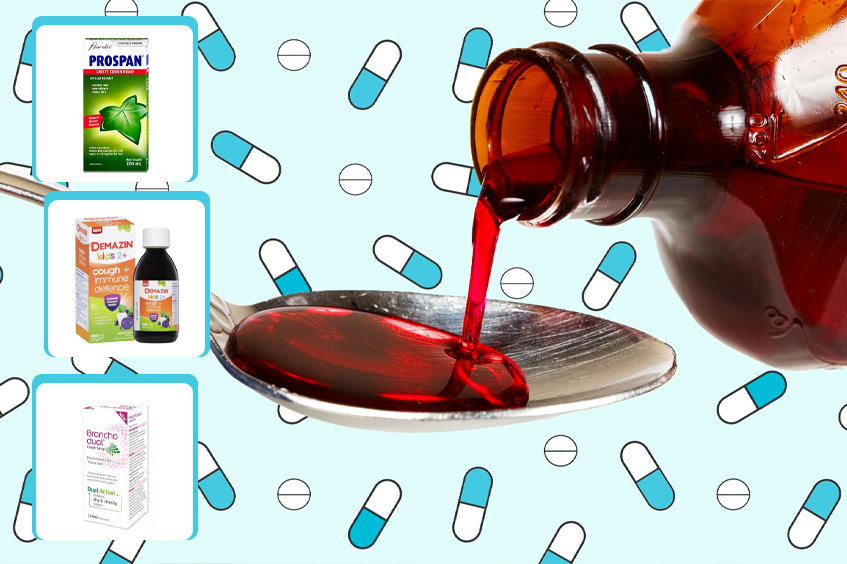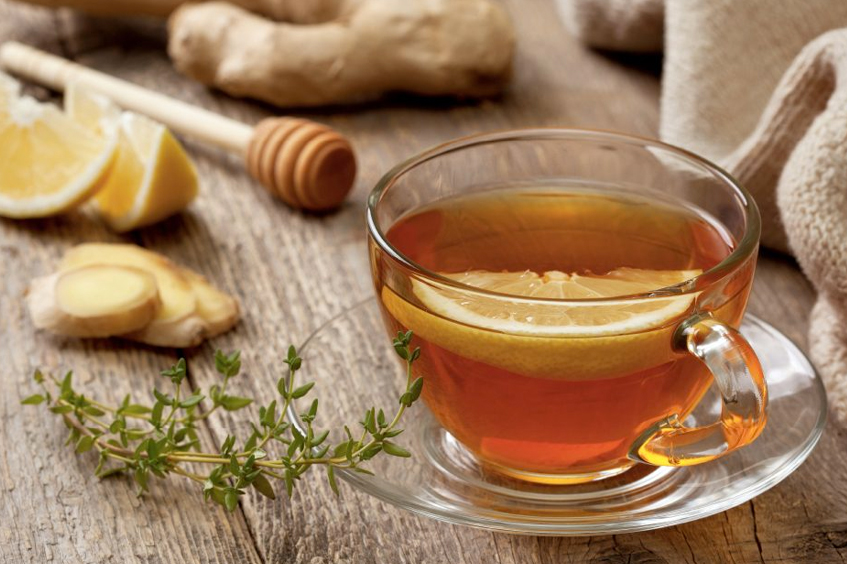
How to Stop a Bad Cough (From Over-The-Counter Medicines to Home Remedies)
Coughs exist as a contribution to the removal of irritants and pathogens from the body, although we all dislike experiencing them as they can be extremely irritating and unpleasant. To soothe (and eventually stop) your cough, you need an appropriate cough therapy that will be determined by the underlying cause including allergies, infections, viruses, smoking cigarettes, and acid reflux.
Contents
Stay Hydrated: Inside and Out
Getting enough fluids is usually a good idea, but it is especially important when you have a cold since staying hydrated helps to thin mucus and make coughs more effective, as well as potentially aiding in the battle against your illness. Water is excellent, but soothing chicken soup or bone broth is also suitable.
Additionally, using a vaporizer or humidifier adds moisture to the air, which can wet your airway passages, thereby lessening the likelihood of waking you up with a dry, hacking cough. This can also be used to relieve coughs during the day; simply place either of the two where you spend the most time, such as your workplace or family area and you’d treat the cough. If you don’t have them at hand, taking a warm shower will help you momentarily hydrate and therefore ease your senses.

Over The Counter Medicine: Soothe Your Cough
Consult a family doctor if you can’t seem to get rid of your cough. A chronic cough that would not go away should be investigated. However, if you begin to have uncomfortable sniffles and coughing, you can try several over-the-counter medicines available at your local pharmacy or even online. You can soothe any unpleasant sensations in your throat with ivy leaf based cough syrup Australia wide pharmacies offer.
In ancient Greece, ivy leaf used to be a symbol of fidelity, and it was identified with the Roman God of merriment and good times. Traditional herbalists utilized ivy berries to treat plague, while ivy leaves boiled in vinegar were used to treat stomach problems and ulcers. These methods are, of course, no longer used – nowadays, you may find ivy leaf as an ingredient in naturally derived syrup at your local pharmacy.

Cough Drops
Cough drops (also known as lozenges or troches) dissolve in the mouth to alleviate irritated throat membranes that cause your coughing. However, same as the different types of cough syrup not all cough drops are made equal.
Menthol
Found naturally in plants such as peppermint, menthol has mild local anesthetic qualities and is available in brands such as HALLSTM.
Eucalyptus oil
Has anti-irritant properties and may have mild antibacterial properties. In brands such as RicolaTM, it is frequently encountered in conjunction with menthol.
Pectin
Found naturally in fruits, pectin acts as a demulcent (or a compound that forms a protective film to prevent irritation). Luden’sTM and other brands that also produce cough syrup Australia based use it.

Throat Sprays
As the name implies, throat sprays are sprayed directly into the mouth to exert local action on inflamed throat tissues. The user spits out extra medication after the spray has remained in the throat for the time specified on the package labelling.
Don’t be concerned if a tiny amount of these medications is accidentally consumed; accidental consumption of a small amount of these medications is entirely safe. Throat sprays, like cough drops and cough syrups, contain a variety of active substances that provide calming effects to your throat infection.
Home Remedies: Boost Your Immune System
Honey
Honey has long been used to treat sore throats. You may make your home cure by combining up to 2 teaspoons of honey with herbal tea or warm water and lemon. The honey soothes, while the lemon juice helps with congestion. You can either eat the 2 teaspoons of honey by themselves or make a spread on bread as a healthy snack.
Pineapple
You might not think of pineapple as a cough treatment, but that could be because you haven’t heard of bromelain. There is some evidence that bromelain, an enzyme found only in the stem and fruit of pineapples, can help suppress coughs and loosen mucus in the throat. Eat a slice of pineapple or drink 3.5 ounces of fresh pineapple juice three times a day to reap the most advantages from the delicious fruit that pineapple is.
Saltwater Gargle
While it may seem to be a plain recipe, a salt and water gargle might help ease a scratchy throat that causes you to cough. A mixture of 1/4 to 1/2 teaspoon of salt and 8 ounces of warm water will help reduce discomfort. It should be noted that children under the age of six are not particularly adept at gargling, so it is better to try other therapies for this age range.

Ginger
A cup of ginger tea has long been used as a home cure for colds, flu, and coughs. Its key ingredient gingerol helps to strengthen your body from inside and provides immediate comfort. One approach to make a therapeutic ginger drink is to combine ginger (1 part), cinnamon (1 part), and lemongrass (1 part) (2 parts). Steep 1 tsp of the formula in 1 cup of boiling water for about 10 minutes, drain and add honey if desired. This combination of remedies has been known to report relief of cold symptoms.
Turmeric
Turmeric has long been used to treat a variety of diseases, including coughing. Curcumin, its main component, has significant anti-inflammatory actions. Turmeric works best when consumed with black pepper. This is because piperine, the main ingredient in black pepper, improves the bioavailability of turmeric. This aids in the absorption of turmeric by your body.
Consider drinking warm turmeric tea or golden milk. For sweetness, add a dash of black pepper and some honey. And, combined with all of these “magic potions”, allow your body to receive the rest it needs. Sleep is the best way for your body to reset and get the much necessary recovery from your illness. But don’t forget to also, when you can, expose yourself to some much-needed fresh air and sunshine.


No Comments